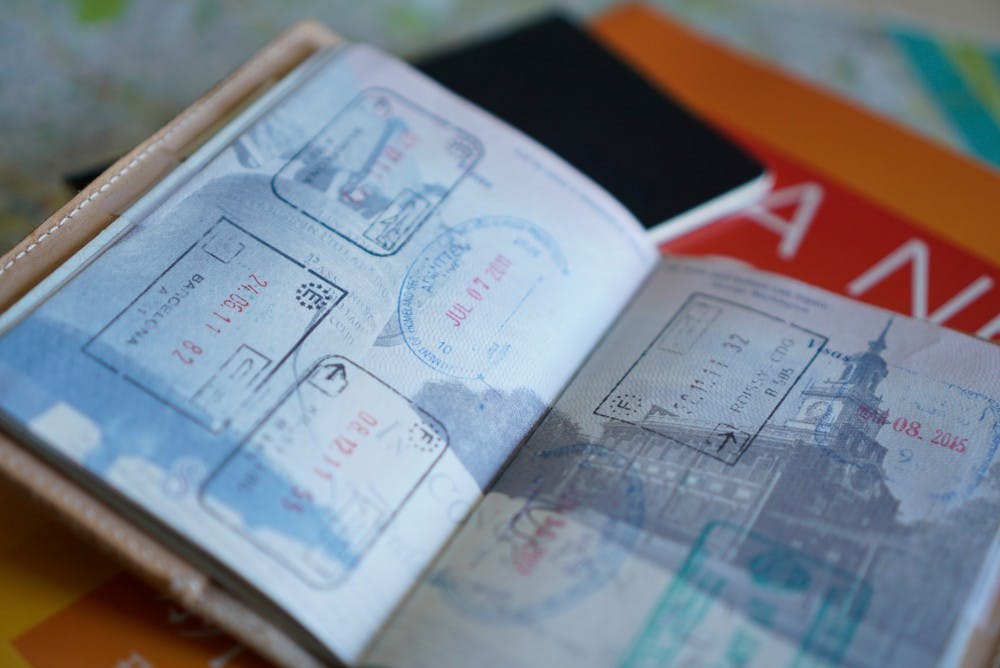
When Engineering junior Dhruv Agarwal applied to Penn, he thought for a long time if he should apply for financial aid. Unlike students from the United States, Canada or Mexico, Agarwal, who was born and raised in India, knew that this decision would likely impact whether or not he would be admitted to Penn.
Agarwal said he ultimately decided not to apply for financial aid because he thought it would lower his chances of getting in.
Penn has a need-blind policy for admissions, but it only applies to domestic and transfer applicants.
Of the eight Ivy League institutions, four schools — Penn, Brown, Columbia and Dartmouth — do not apply the need-blind policy to international students, meaning that they take into consideration the applicant’s ability to pay for school when deciding admission.
According to Dean of Admissions Eric Furda, offering the need-blind policy to international students will lower U.S. applicants’ chances of receiving aid.
“They’re going to compete for the financial dollars that we have,” he said.
Agarwal, who is president of the Assembly of International Students, said most international students fear being rejected for requesting too much aid and often decide against applying for it or against applying to an American institution altogether.
“A lot of students back in their home countries can get tuition paid by the state,” Agarwal said.
According to Classbase, an online education database, students attending public universities in India pay approximately $50 each year. In contrast, attending Penn is said to cost close to $70,000 a year without financial aid.
There are some international students who have no choice but to apply for financial aid, even if that means risking a lower chance at admission.
“We got an email that said if we don’t apply for financial aid we had better chances of getting in,” College freshman and Iraqi-native Abdullah Noaman said. He still decided to apply for aid.
“I did understand that my chances would be lowered,” Noaman added.
After spending a year at Penn, Noaman does not regret his decision.
“[International] students who want to apply to Penn should be highly encouraged to do so,” Noaman said. “Penn has been extremely generous to these people who are admitted, it’s kind of humbling how generous.”
There are some programs that make applying to Penn easier for international students who need financial aid.
Kerry O’Neil, a College freshman from Scotland, was admitted to Penn through the Sutton Trust Programme, a five-year-old program the helps students who come from low-income backgrounds in British public schools get into American universities.
“I definitely was [scared to apply to Penn] until I found out they were need-blind for my program,” O’Neil said. “If money is the only reason I couldn’t go somewhere, that would’ve been awful.”
But O’Neil knows that her experience is not shared by all international students.
“Penn may be losing out on people who would apply if it was need-blind, but don’t because they’re scared about the money situation,” O’Neil said. “It’s really sad especially at schools like Penn that have such a big endowment.”
Furda said that although he would love for Penn to be need-blind for international students, the University lacks the resources to do so.
“Penn is the largest undergraduate institution with a grant-based financial aid policy,” Furda said. “Being need-blind even for national-based students as well as Canada and Mexico, we’re in a rare group there.”
O’Neil said that, regardless of costs, she thinks Penn should better address the issues that international students often face when applying to Penn.
“In a lot of countries people are looking to America to get a good education and I don’t think [their nationalities] should be a barrier,” she said.
The Daily Pennsylvanian is an independent, student-run newspaper. Please consider making a donation to support the coverage that shapes the University. Your generosity ensures a future of strong journalism at Penn.
Donate






